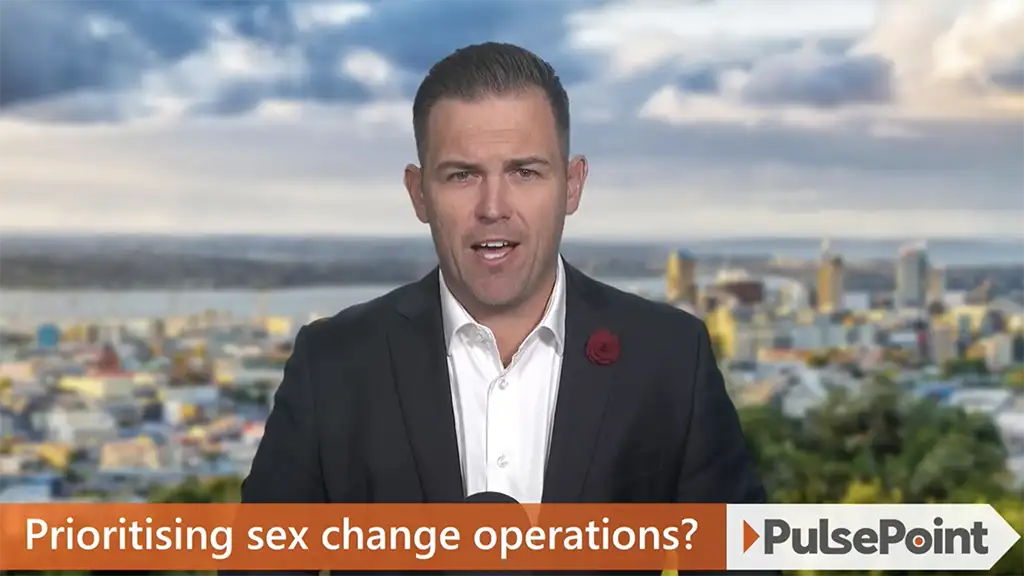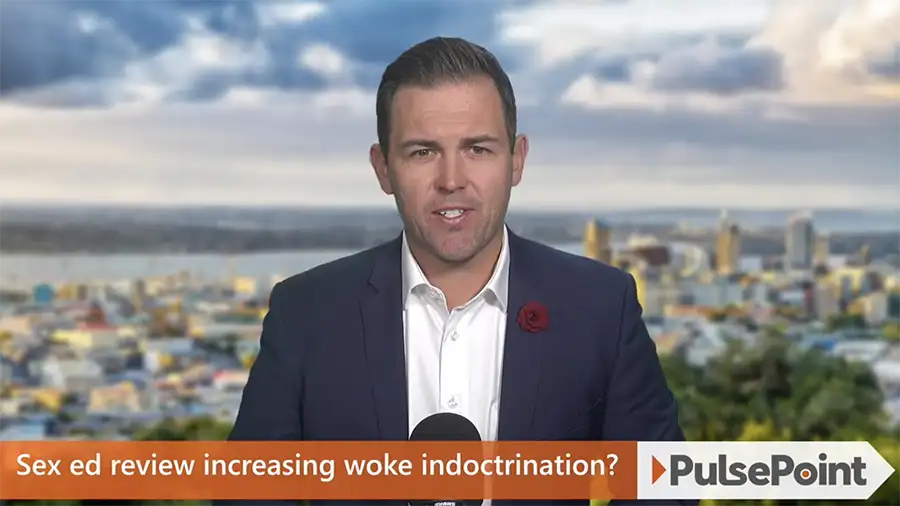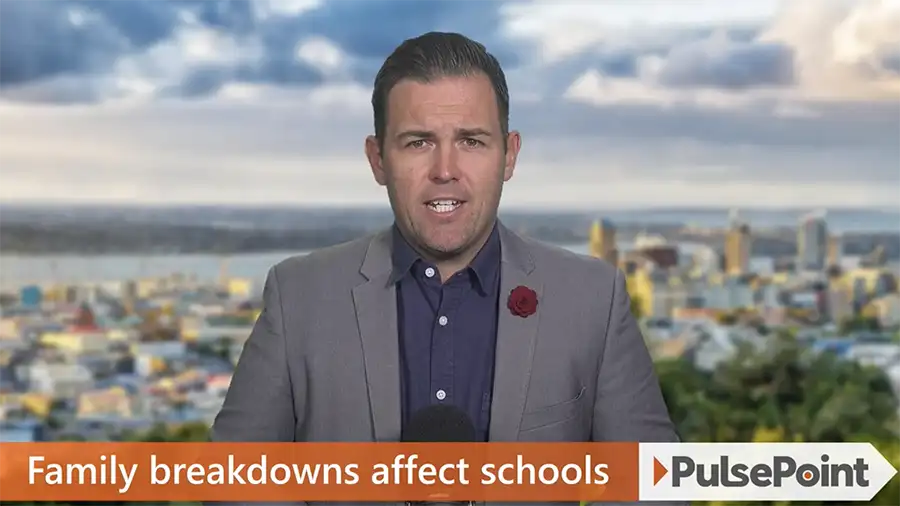Welcome to PulsePoint for the 24th April 2024. PulsePoint – the latest media stories and research related to family and society that you need to know about – issues from both New Zealand and overseas that the Family First team have been monitoring and researching over the last week. It’s time to cut through the spin and uncover the real issues.
On this episode of PulsePoint:
1. Abortions have increased 25% since the law change in 2020
2. Scotland hits pause on puberty blockers for children
3. Family First is calling for an urgent pause on puberty blockers in NZ
4. LGBT groups lobby for radical RSE programme in schools
4. There is a concern over very young children having unrestricted access to social media and smartphones
You can check out all these stories and more on our website FamilyFirst.nz.
We’ll keep watching the news… so that you don’t have to.
TRANSCRIPT:
In this episode of PulsePoint, we’ll update you on these topics:
Abortion increased 25% since law change.
Scotland Hits ‘Pause’ on Puberty Blockers for Children
FamilyFirst is calling an urgent pause on puberty blockers.
LGBTQ groups lobby for radical RSE programme in schools.
Concerns over Preschool children having unrestricted access to social media.
Intro: Welcome to PulsePoint – the LATEST media stories AND research related to family and society that YOU need to know about from both New Zealand AND overseas. Let’s cut through the spin and uncover the REAL issues.
1. Family First says that the latest abortion statistics make grim and upsetting reading, with a 25% increase in abortions since the decriminalisation of abortion in March 2020.
According to an Official Information Act request received by Right to Life, the provisional figures show a 14% increase in abortions from 14,164 abortion procedures in 2022 to 16,214 last year (2023).
This latest figure represents an average of almost 45 child per day killed in the womb in New Zealand.
However, this is the sad reality which we predicted would happen when the law was changed.
Medical abortions are also on the increase – but according to the Abortion Services Aotearoa NZ report released last year and covering abortions up to the end of 2022, 221 women suffered complications including haemorrhaging, retained products, infections and even failed abortions (up from 161 the previous year – an almost 40% increase) and this risk was greater with medical abortions.
60% of complications were with medical abortions. For 57 medical abortions, they couldn’t even find the woman to follow up.
Our abortion law denies the humanity of the baby and creates inconsistency with other legislation and public health messaging for pregnant women, which clearly recognises the rights of the unborn child. Anybody who has viewed the ultrasound of an unborn child will know that this law is a gross abuse of human rights.
We will continue to fight for the rights of the unborn child and the welfare of pregnant mothers.
2. Scotland’s National Health Service has stopped all new prescriptions of puberty-blocking drugs and other hormone treatments for minors, citing a comprehensive review of youth gender services released in England last week.
Scotland’s new changes go further, pausing the use of puberty blockers while also restricting hormone therapies until teenagers turn 18. The changes will not affect patients already getting these medications from the country’s Young People Gender Service.
The Cass review, commissioned by N.H.S. England and carried out by Dr Hilary Cass, an independent paediatrician, over the course of four years, concluded that the evidence for benefits of youth gender treatments was “remarkably weak” and that pressing questions remained about potential long-term risks.
Top health officials in Scotland welcomed the recommendations from Dr Cass’s review, citing an increasingly polarized debate over transgender rights that had compromised medical care for youth.
3. Family First NZ is calling for an urgent pause on the use of puberty blockers, and for a full inquiry into the long-term effects and potential harms of puberty blockers and cross-sex hormones on vulnerable young people.
There have been significant developments around the world which now puts New Zealand out of step with other countries who are now taking a cautious approach.
Last week we told you about Britain’s National Health Service (NHS)’s CASS review. Dr Cass said “The reality is that we have no good evidence on the long-term outcomes of interventions to manage gender-related distress… The evidence we do have for gender medicine is built on “shaky foundations,” The NHS will no longer routinely prescribe puberty blockers at gender identity clinics in England and Wales.
Scotland’s NHS has just paused prescribing puberty blockers to children referred by its specialist gender clinic.
French senators have published a report that expresses alarm at the excesses of child gender transition and have proposed a bill to put an end to it.
Belgium and the Netherlands have become the latest countries to question the use of puberty blockers on children after the Cass Review warned of a lack of research on the gender treatment’s long-term effects…
Other countries to have changed or reviewed their approach are Italy, Denmark, Norway, Sweden and Finland, and in the US, a total of 22 states have so far passed laws protecting children from routine medicalisation of gender distress.
Here in NZ, Health NZ Te Whatu Ora says on their website that we are guided by WPATH!
And until 2020 the Ministry of Health stated that “Puberty Blockers are a safe and fully reversible medicine” But that advice was quietly changed by the Ministry. “Safe and fully reversible medicine” has been removed and replaced with “Blockers are sometimes used from early puberty through to later adolescence to allow time to fully explore gender health options.”
It’s urgent that the government and the Ministry of Health pause the use of puberty blockers, cross-sex hormones and operations for minors while further research is undertaken.
It’s time we put first-do-no-harm medicine and credible research ahead of ideology and an agenda to push gender fluidity indoctrination.
It’s time we had watchful waiting, therapy, and healing of the mind rather than chemicals, castration, and confusion.
4. The Mental Health Foundation, in collaboration with LGBQT+ organisations, has penned an open letter to the Minister of Education opposing the removal of the relationships and sexuality education guidelines in schools.
These are the same guidelines many parents are concerned about age appropriateness and content being centred primarily on LGBTQ+ themes whilst ignoring traditional issues and family life.
In a recent interview, CEO Shaun Robinson stated that the guidelines are to equip young people and that it is their right to be equipped for life. According to Mr. Robinson, parents don’t decide whether a child or young person should be equipped for life.
The research about these guidelines and whether they help with the complex mental health issues young people face is still lacking.
What is known, according to research out of Finland and the recent CASS review, is that mental health is worsened by gender confusion, and youth suicide rates are still high.
5.New figures reveal that in the UK, a quarter of children under seven have their own smartphone with some as young as three owning the devices.
Research from technology regulator Ofcom found a sharp increase in ownership of the devices by young children and widespread use of apps designed for teenagers.
Ofcom’s study of technology use across Britain found that “infant school children are increasingly online and given more digital independence by parents”.
Lord Bethell, the former health minister, said: “It’s time to introduce emergency legal measures to mandate the age restrictions in these apps, because tech companies do not care.”
Children are bypassing the controls meant to enforce age limits, even lying about their age to do so according to the study conducted.
A TikTok spokesman said the app removed 20 million underage accounts globally in the final three months of 2023.
While social media is not inherently problematic, it has proven have aspects of perversion, deviancy and even a haven for predators. The onus is on parents to ensure they are monitoring their children’s social media use.
In NZ, the data from the Growing Up in NZ research when the children were eight years old showed that 2 in 5 children (41%, n=1925) had access to a smartphone. It does not say whether it was their own phone or whether they were using a parents or a sibling.
This issue should matter to families because research has shown that children often experience things that are “nasty or hurtful” online.
Officials in the UK are considering new rules that would require parental approval when children under the age of 16 sign up for social media.
This is a discussion we should be having in New Zealand.
And THAT’S the latest episode of PulsePoint. You can check out ALL these stories AND MORE on our website familyfirst.nz. We’ll keep watching the news… so that you don’t have to.
See you next time.
Blessings,
Tumby Stowers
Image Image
A picture containing text, clipart
Description automatically generated



